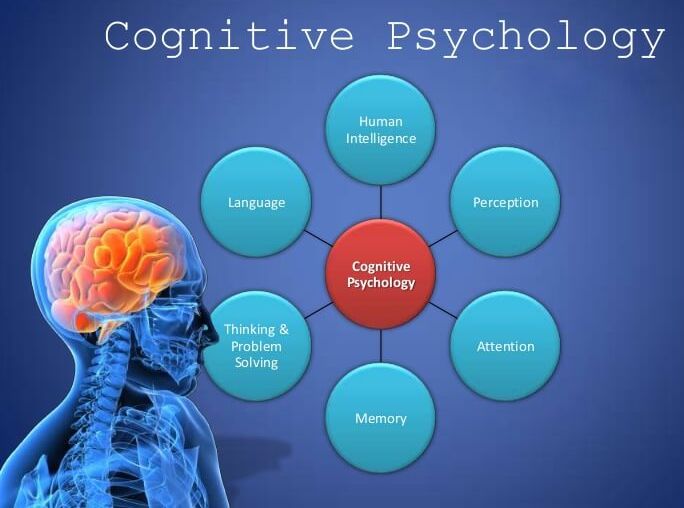Cognitive psychology: School of psychology that focuses on how people perceive, store, and interpret information through such thought processes as memory, language, and problem solving.
Language: The use by humans of voice sounds and written symbols representing those sounds in organized combinations to express and to communicate thoughts and feelings.
Learning: Thorough knowledge or skill gained by study.
Memory: The power or ability of remembering past experiences.
Perception: The ability, act, or process of becoming aware of one's surrounding environment through the senses.
Reasoning: The drawing of conclusions and judgments through the use of reason.
Perception: Perception or perceiving refers to the information we get from our five senses (sight, hearing, touch, smell, and taste). Studies have shown that our human senses perceive or take in far more information or data than our nervous systems can ever process or pay attention to. We get around this by organizing this data into chunks or groups, so that when we see a new object (such as a new type of car), we automatically compare it against the vast number of patterns or concepts we already have stored in our brains. When we find that it matches a concept—since we probably already have a general idea of what "carness" is, for example—we do not have to then process every little bit of detailed information about this new car to know that it is a car (that is, in order to perceive it or recognize and understand it as a car). At the end of this process, we have made a judgment of some sort about this new thing. Once scientists discovered this aspect of perception, they were better able to explain how people often see what they expect to see and are sometimes in fact mistaken. This happens when we take only that first, matching impression of something and conclude that it is correct (that is, that the reality is the same as the idea of it we have in our minds) without taking the time to check out all the details of a thing. However, this ability to conceptualize or to create concepts in our minds is very important and is one of the key functions or processes of cognition or knowing.
Reasoning and problem solving: Reasoning could be described as the process by which people systematically develop different arguments and, after consideration, arrive at a conclusion by choosing one. Like reasoning, problem solving also involves comparing things, but it is always aimed at coming to some sort of a solution. We usually do this by creating models of the problem in our minds and then comparing and judging the possible solutions. One thing we know about reasoning and problem solving is that it is usually much more difficult for people to do when it remains in the abstract. In other words, most people can more easily solve a problem if it is concrete than if it remains abstract. A common example given is the game "Rock breaks scissors, scissors cut paper, paper covers rock." When stated abstractly (A breaks B, B cuts C, and C covers A), we can easily become confused.
Learning: Swiss psychologist Jean Piaget (1896–1980) spent a lifetime studying how children learn, and he identified three stages that children go through as they grow and develop. In the first and simplest stage, an infant believes that an object is still where he or she first saw it, even though the infant had seen it moved to another place. In the second stage, the young child knows that it is at times separate from its environment and has developed concepts for things whether he or she is presently involved with them or not. The final, more mature stage has the older child understanding how to use symbols for things (such as things having names) and developing the ability to speak and use those symbols in language.
Memory: Memory, or the ability to recall something that was learned, is another cognitive function that is very important to learning. Scientists usually divide it into short-term and long-term memory. Our short-term memory seems to have a limited capacity, is very much involved with our everyday speech, and appears very important to our identity or our sense of self (who we are). Long-term memory stores information for much longer periods of time and seems to show no limitations at all. The three basic processes common to both types of memory—encoding or putting information into memory, storage, and retrieval—are exactly those used in today's computers.
Language: Although many animals besides human beings have a brain, nervous system, and some cognitive functions (that is, they share in a way many of the same processes of cognition), the one function of cognition that sets humans apart from other animals is the ability to communicate through language. Humans are unique in that they can express concepts as words. Some say that it is through studying language that we will gain an understanding of how the mind works. We do know that we form sentences with our words that allows us to express not just a single concept but complex ideas, rules, and propositions.
Understanding cognition or figuring out the process involved in knowing is something science has only really just begun. However, the combined work of philosophers, psychologists, and other scientists using new technologies for studying the brain may result in the next great scientific breakthrough—the explanation of how the human brain carries out its mental task of knowing.


